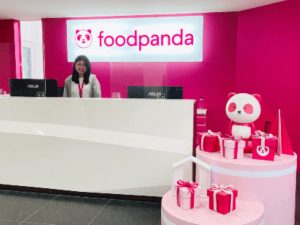Uber Technologies announced on May 14, 2024, its acquisition of the Taiwan unit of Delivery Hero’s Foodpanda for $950 million in cash. This strategic move is aimed at strengthening Uber Eats’ presence in Asia, particularly in the competitive Taiwanese market. Concurrently, this sale highlights Delivery Hero’s ongoing retreat from Southeast Asia, as it seeks to divest several operations in the region.
In addition to the acquisition, Uber will purchase $300 million in newly issued ordinary shares of Delivery Hero, thereby taking a stake in the Germany-based food delivery giant. The transaction, one of the largest cross-border acquisitions involving Taiwan, is expected to close in the first half of 2025. Upon completion, Foodpanda’s local consumers, merchants, and delivery partners will transition to Uber Eats.
Uber Eats and Foodpanda are currently the dominant players in Taiwan’s food delivery market. A recent report from January 2022 to August 2023 indicated that Foodpanda led the market with a 52% share, while Uber Eats held 48%. Smaller competitors, such as Foodomo and various fast-food delivery apps, collectively account for less than 2% and 6% of the market share respectively.
“Taiwan is a fiercely competitive market, where online food delivery platforms today still represent just a small part of the food delivery landscape,” said Pierre-Dimitri Gore-Coty, Senior Vice President of Delivery at Uber. He expressed enthusiasm about the enhanced convenience and value this transaction is expected to bring to consumers.
Uber anticipates significant geographical synergies from the deal. The combined entity will benefit from Uber’s extensive selection in northern Taiwan and major urban centers, alongside Foodpanda’s strengths in southern Taiwan and smaller cities. Taiwan’s online food delivery market, currently valued at $51.3 million, is projected to grow to $68.5 million by 2029.
The food delivery sector has experienced significant fluctuations, with unit economics and the struggle to achieve economies of scale driving consolidation. The “instant grocery” market has been particularly volatile, with substantial investments being lost as startups fold or are acquired by larger players, often for minimal returns.
Analysts at Bernstein highlight Taiwan’s well-established food delivery industry and its concentrated topography as attractive factors for Uber. They note that Taiwan’s GDP per capita levels are favorable compared to the broader Asian market, with Uber Eats being well-positioned. Taiwan also exhibits strong business metrics, with an average of seven monthly orders per user, significantly higher than the typical 3-5 orders seen in other delivery markets.
Delivery Hero CEO and co-founder Niklas Östberg acknowledged the hard work of the Taiwanese team over the past eight years. He stated that the company’s focus would now shift to other markets where it can have a more significant impact. Despite terminating earlier talks to sell Foodpanda’s operations in select Southeast Asian markets, Delivery Hero remains committed to streamlining its global footprint and optimizing its resources.
This acquisition marks a significant step for Uber in expanding its footprint in Asia and underscores the dynamic and competitive nature of the food delivery industry.




















